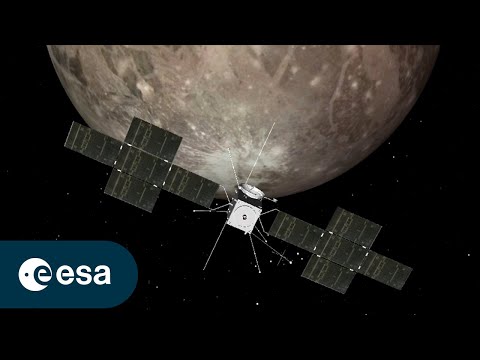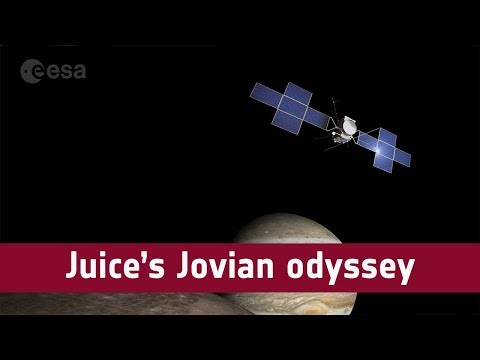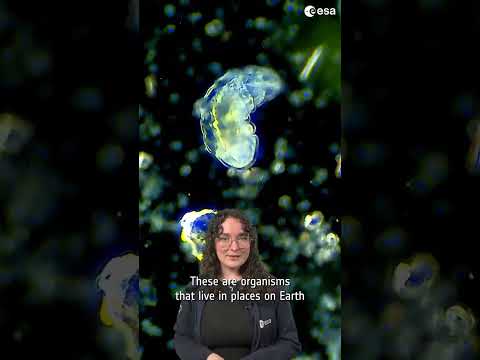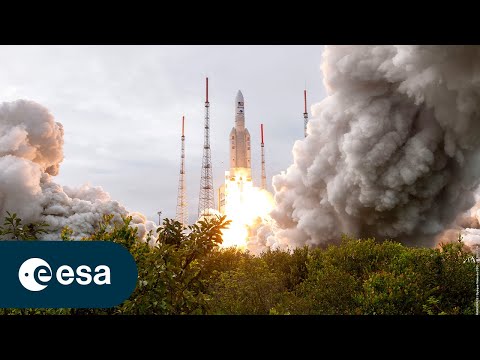Time to explore Jupiter with some JUICE!🧃 #shorts
Our Jupiter Icy Moons Explorer, Juice, will make detailed observations of the giant gas planet and its three large ocean-bearing moons – Ganymede, Callisto and Europa – with a suite of remote sensing, geophysical and in situ instruments. The mission will characterise these moons as both planetary objects and possible habitats, explore Jupiter’s complex environment in depth, and study the wider Jupiter system as an archetype for gas giants across the Universe.
Juliet will be taking us to Jupiter and its moons in the coming weeks. So stay tuned for more!
📹 @europeanspaceagency
★ Subscribe: http://bit.ly/ESAsubscribe and click twice on the bell button to receive our notifications.
Check out our full video catalog: http://bit.ly/SpaceInVideos
Follow us on Twitter: http://bit.ly/ESAonTwitter
On Facebook: http://bit.ly/ESAonFacebook
On Instagram: http://bit.ly/ESAonInstagram
On LinkedIn: https://bit.ly/ESAonLinkedIn
On Pinterest: https://bit.ly/ESAonPinterest
On Flickr: http://bit.ly/ESAonFlickr
We are Europe’s gateway to space. Our mission is to shape the development of Europe’s space capability and ensure that investment in space continues to deliver benefits to the citizens of Europe and the world. Check out https://www.esa.int/ to get up to speed on everything space related.
Copyright information about our videos is available here: https://www.esa.int/ESA_Multimedia/Terms_and_Conditions
#ESA
#Juice
#Jupiter





Juice ME!!! LOL! Ju(Jupiter) ice(icy) M(moons) E(explorer)
Looking forward to the launch of Juice, and what it will find.
Awesome.
Safe flight JUICE! It's strange to think when it finally reaches Jupiter, the chances are I'll be long dead.
Doesn't this thing test to see if there is methane coming out of Europa as a possible sign of life? If so isn't that a bit stup id? Methane is found in a lot of places that have no life throughout the solar system (Pluto, Titan…)
i dont get what u r saying…